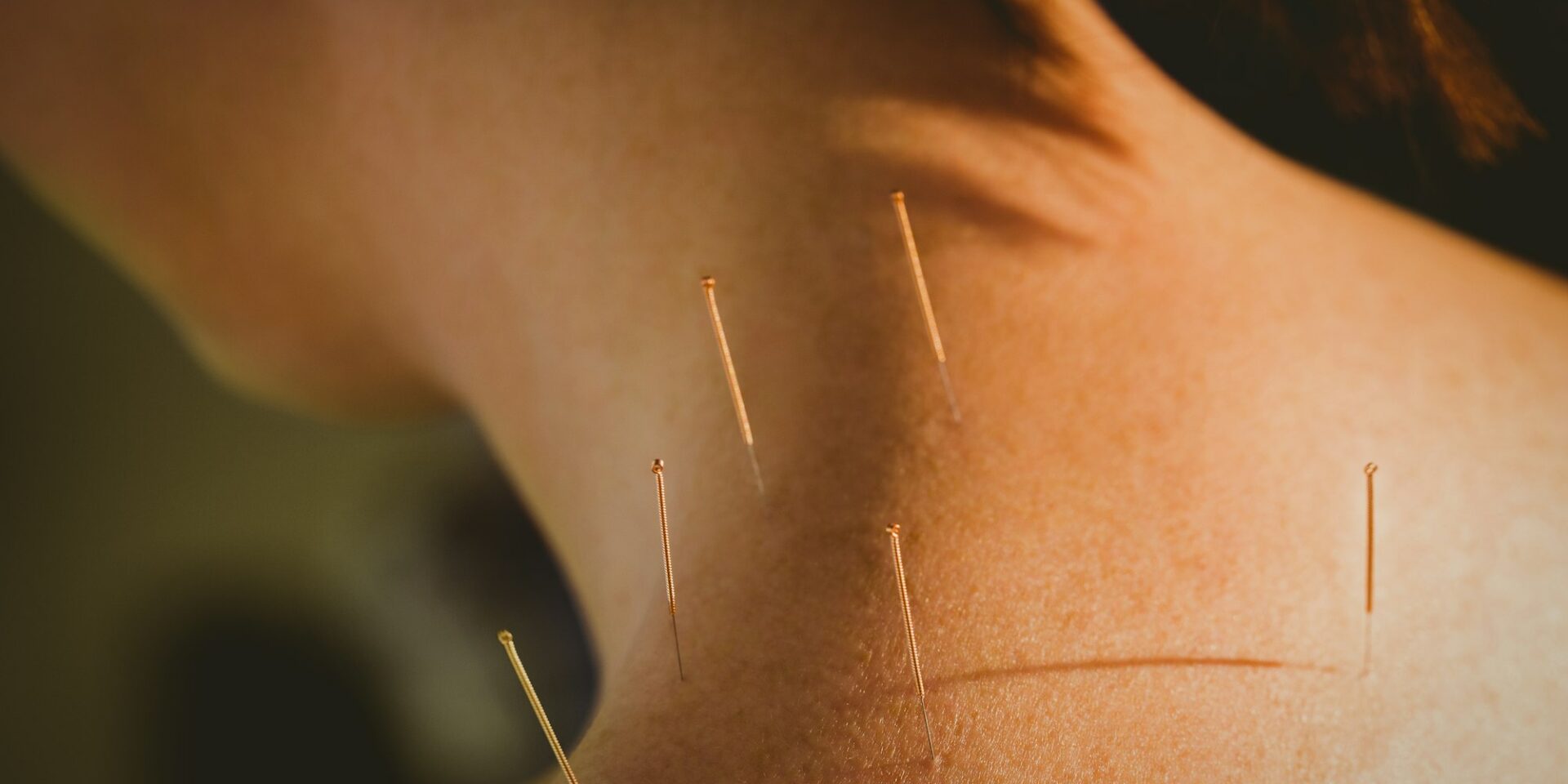Written By: Dr. Kristen Burris, DAcCHM
Acupuncture and Chinese Herbal medicine have been used effectively to balance women’s hormones and treat pain for over two millennial. Billions of women seek help for their complicated gynecological and menstrual problems beyond the knife or prescription pad. The most common gynecological problems women seek treatment for with natural medicine including acupuncture and Chinese herbal medicine include: Infertility, habitual miscarriage, PCOS (poly cystic ovarian syndrome), endometriosis, anovulation, pelvic pain, dysmenorrhea (menstrual cramps and pain), PMS, PMDD premenstrual dysphoric disorder, fibroids, cysts, abnormal uterine bleeding, pelvic inflammatory disease, vaginitis, painful intercourse, heavy menstrual bleeding, and gynecologic pain syndromes. In this blog we will address acupuncture for endometriosis, dysmenorrhea and pelvic pain.
Acupuncture for abdominal wall endometriosis: A case report published recently in 2023 by Du et al. (2023) showed that this therapy may be effective for pain associated with endometriosis. Many women suffer from endometriosis, a chronic often debilitating gynecological disease that causes tissues from the endometrial lining to grow outside of the uterus throughout the body. The most common symptom of endometriosis is pelvic pain. Other symptoms often associated with endometriosis include dysmenorrhea, menstrual pain, painful intercourse, pain with bowel movements, heavier menstrual flow and possibly infertility.
Western medical treatments are usually quite invasive therapies including surgery or even hysterectomy are the typical, western medical treatment options. These are expensive, carry significant risks and often result in the lack of the ability to have a child and may require a lifetime of hormone therapy. This study design was one case report and assessed one woman with a past surgical history with significant pain and mass considered abdominal wall endometriosis. The case study was retrospective.
The interventions included: acupuncture and cupping therapy with the goal to alleviate pain, reduce the size of the mass by activating blood circulation, reducing pain and dissipate the endometrial masses. Included in the study were tables that showed ultrasound images and a timeline of the disease. The symptoms first appeared in 2019 and abdominal wall tumor excision surgery was performed. Less than two years later, the woman was diagnosed with recurrent endometriosis. Post acupuncture and cupping therapy showed the nodule became smaller and pain was relieved. By the end of the year there were no reported signs of recurrence.
The outcome showed through ultrasound that the mass had reduced in size. The authors had no known conflicts of interest and had none to disclose. The results showed to have promise for acupuncture by effectively reducing the size of the abdominal endometrial masses and effectively offered pain relief. Although only one case study, this included very important findings in the world of women’s health. Many women feel conflicted with not only the diagnosis of endometriosis, but the way in which it limits their ability to fully live their lives, work and have a family. Offering published studies, even one case study, that shows effective treatment for endometriosis beyond surgery, which in this case, the surgery had failed, is a worthwhile to pursue acupuncture for women’s health medicine.
Comparatively, another study composed by Giese et al. (2023b) also evaluated the effectiveness of acupuncture for endometriosis and pelvic pain. These studies were assessed through a systematic review and meta-analysis retrospectively. Only randomized controlled trials (RCTs) were used for inclusion in the six studies complied for data. However, crossover randomized control trials were permitted for inclusion but only the phase 1 data was used for analysis due to concerns regarding carry over effects. The six studies included 331 women in total.
Interventions for this study included all types of penetrating acupuncture styles including many different styles of acupuncture including: Five Element Acupuncture, Japanese Acupuncture, Traditional Chinese acupuncture, auricular ear acupuncture, and biomedical or “western” acupuncture were all included. Studies were excluded if acupuncture was not a primary intervention or if non-invasive acupuncture was used.
Outcome measures tracked pain severity measured by a medically accepted scale called the Visual Analogue Scale (VAS), Numeric Rating Scale (NRS) or other validated tools that were not specified. Secondary outcomes included: treatment related adverse events, HRQoL measured by the Endometriosis Health Profile (EHP-30), Short Form-36 Health Survey (SF-36), or other HRQoL measures.
The results of the study showed that acupuncture demonstrated improvement by reducing the severity of dysmenorrhea (menstrual pain) and overall pelvic pain when compared to non-specific acupuncture, Chinese herbal medicine, and typical care for the condition. Reductions in pelvic pain were clinically relevant in VAS scores showing greater than 20% reduction. Similar reductions were also outlined in HRQoL when compared to sham (placebo) acupuncture or typical care. In summary acupuncture has been proven to be an effective treatment to reduce pelvic pain for dysmenorrhea and menstrual pain in women.
This article was written by Dr. Kristen Burris, DAcCHM, doctor of acupuncture with a specialization in Chinese herbal medicine. Dr. Burris is fondly known as the “babymaker” for her expertise in infertility and miscarriage prevention. She offers telemedicine throughout the U.S. for the most complex infertility cases and in-person women’s healthcare in the Boise, Idaho area. She has been voted Best of Idaho, Best of Treasure Valley, Best of Boise and Top Doc of Eagle. You may find her at her private practice at Eagle Acupuncture or follow her on Instagram.
References
- Du, X., Tang, J., Zhang, L., & Yi, W. (2023). Acupuncture for abdominal wall endometriosis:
- A case report. Medicine, 102(50),e36572. https://doi.org/10.1097/md.0000000000036572
- Giese, N., Kwon, K. K., & Armour, M. (2023b). Acupuncture for endometriosis: A systematic review and meta-analysis. Integrative Medicine Research,12(4),101003.





